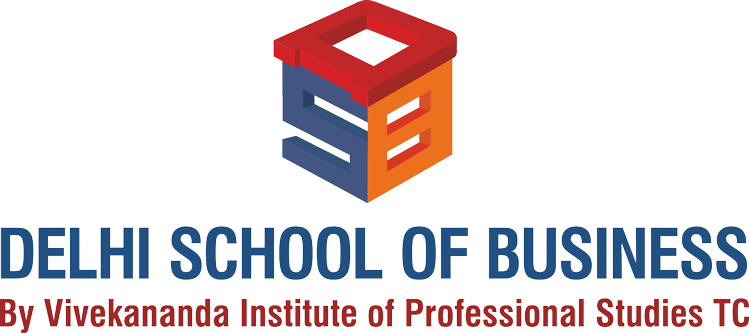All about FinTech and its growth in India
Digital technology is expanding, and practically every business is reaping the benefits by digitally altering its operational processes, management, and customer services. As the demand for the digital transformation of the entire working structure grows, financial institutions are modifying their traditional processing techniques and progressively implementing the solutions given by Fintech that interpret how they provide their services. Financial technology (also known as FinTech) refers to new technology that aims to enhance and automate the supply and usage of financial services. FinTech is a rapidly expanding business with boundless potential to enhance our financial systems. FinTech is being utilised for a wide range of critical financial tasks, including digital payments, investing, and asset management, as well as lending and loan repayment, trading, and personal banking. Any software-based financial service delivery system, such as internet banking, mobile payment apps, or even cryptocurrencies.
FinTech is a portmanteau meaning “financial technology,” according to Forbes’ definition. It is a one-size-fits-all method used to supplement, simplify, and digitalize the traditional structure of financial services. FinTech is a combination of software, algorithms, and apps for computer and mobile devices. It does, however, contain hardware such as smart, linked piggy banks and virtual reality platforms. FinTech systems handle a variety of operations, including check depositing, money transfer from one account to another, bill payment, and financial aid. FinTech encompasses a wide range of financial services/activities such as money transfer, checking to deposit via mobile phones, applying for a credit card without physically visiting a bank, raising funding for a business/start-up, and maintaining one’s own investment without the aid of a human.
The rise of FinTech has altered the way businesses operate. The traditional business strategy of a new company is diverting to a local street bank, and long-established investors are exiting the game in the city. FinTech is a rapidly developing subset of the financial services sector that supports corporations or tech-focused startups in modernising the way the financial services industry functions. There are several options available today for starting a firm and expanding its horizontals, ranging from crowdsourcing to mobile payments.
What is the application of financial technology?
It assists businesses, company owners, and consumers in better managing their financial operations and procedures. Fintech brings to the table the ability to streamline financial operations and automate ordinary, time-consuming procedures. Fintech benefits include:
- Simplifying complicated financial activities
- Controlling Expenses
- Data analytics
- Fraud protection
- Automated report production and many more applications are out there.
FINTECH in different domains
Machine learning/artificial intelligence (AI), predictive behavioural analytics, and data-driven marketing are some of the new technologies that will remove guesswork and habit from financial choices. “Learning” applications will not only learn users’ patterns, which are frequently concealed from them but will also involve users in learning activities to improve their habitual, unconscious spending and saving decisions. Fintech is also an early adopter of automated customer service technologies, using chatbots and AI interfaces to help clients with basic tasks while simultaneously lowering personnel expenses. Fintech is also being used to combat fraud by using payment history data to indicate transactions that are out of the ordinary.
Described as a combination of the latest technologies, fintech enhances and automates the way financial services are marketed, practised, and delivered. Through digital financial transactions, we have become more efficient at conserving, borrowing, and investing money.
Digital Banking: Digital banking offers consumers the only financial security and wellness that they need, which is the reason more and more financial institutions and bodies are adopting mobile banking at a rapid pace to meet the growing demand for digital banking among consumers. On their respective platforms, most banks are providing some types of mobile banking capabilities with some beneficiary schema and offers.
Digital Payments: It is now common to use mobile apps for online mobile payments, which is the way to go, even though everyone prefers digital platforms for payments and money management. Fintech applications and gateways enable users to conduct banking activities without physically visiting a bank thanks to mobile payment apps and gateways. In order to replace traditional payment methods, peer-to-peer payment services have evolved as society moves away from cash-based societies toward digital (mobile) modes of payment.
Robo-advisors: The concept of robo-advisory services is that they offer automated investment advice to lower costs and expand access to the public. Examples include Betterment and Wealthfront. Additionally, it helps increase asset allocation efficiency and generate portfolios for customers, allowing users of all ages to engage in investment projects and activities at minimal cost and effort.
Cryptocurrency and blockchain: In addition to the development of digital currencies, such as cryptocurrency (bitcoin), fintech also includes the deployment of digital currencies. Financial technology is likely to be a positive impact on the development and adoption of cryptocurrencies. The use of blockchain technology can verify money transactions in a decentralized manner, where cryptocurrency exchanges connect users to buy and sell bitcoins.
Unlike traditional currencies, cryptocurrency is a decentralized virtual currency that cannot be controlled by governments since it’s a highly secure virtual currency. By storing authentic data on a blockchain, blockchain solutions aim to restrict fraud.
Digital Lending: There are many fintech lending apps available nowadays that facilitate conversations between lenders and borrowers as well as loan settlements. Fintech apps simplify loan procedures and make them easier to manage for financial institutions like banks and individual lenders.
Digital Investment: Investing in financial assets and stock markets is easier and more efficient with fintech investment apps. In addition to facilitating investments, such apps supply users with pertinent and insightful data to inform their investment decisions.
Consumer Finance: Apps that help consumers manage their personal finances provide them with financial management tools. A kind of app like this provides users with relevant tools for managing expenses, planning budgets, and spending in a thoughtful way.
Some Facts about FinTech in India (source- investindia.gov.in.)
India has the greatest FinTech acceptance rate in the world, according to investindia.gov.in. India is one of the fastest-growing Fintech marketplaces in the world, with 6,636 FinTech startups. The Indian FinTech business is worth $50 billion in 2021 and is expected to be worth $150 billion by 2025. Payments, Lending, Wealth Technology (WealthTech), Personal Finance Management, Insurance Technology (InsurTech), Regulation Technology (RegTech), and other subsegments comprise the Indian Fintech business ecosystem. In FY22, the Fintech sector in India received $8.53 billion in investment (through 278 transactions). A total of 323 banks have joined India’s Unified Payments Interface (UPI) and have recorded 5.9 billion transactions, exceeding $130 billion per month, since May 2022. As of June 2022, there are 23 fintech companies in India that have achieved “unicorn” status. The valuation is over $1 billion.
Over the previous few years, the Indian Fintech market has experienced an enormous increase in funding; investments totalling more than $8 billion have already been recorded across all phases of investment in 2021. While Payments and Alternative Finance segments constituted more than 90% of the sector’s investment flows in 2015, there has been a major shift towards a more equitable distribution of investment across sectors including InsurTechs, WealthTechs, etc. India has 23 Fintechs which have gained ‘Unicorn Status’. 1/5 Startup Unicorns are from Fintech. India recorded the largest absolute number of real-time transactions in the world; India’s real-time transactions crossed 8Bn, which is 6.5 times the combined volume of the world’s leading economies: U.S., Canada, U.K., France and Germany in 2021, resulting in cost savings of ~USD 12.6 Bn for Indian businesses and consumers in 2021.
The digital investment market is set to be worth $14.3 bn by 2025, growing from $6.4 bn in 2021 at a 5-year CAGR of 22.4%. India`s digital payments market is at an inflexion point and is expected to more than triple from $3 tn today to $10 tn by 2026. As a result of this unprecedented growth, digital payments (non-cash) will constitute nearly 65% of all payments by 2026 i.e., 2 out of 3 transactions (by value) will be digital. The Fintech revolution in India is the culmination of years of effort in laying the groundwork for developing key enablers through important initiatives like-
India Stack: IndiaStack is a set of APIs that allows governments, businesses, startups and developers to utilise a unique digital Infrastructure to solve India`s hard problems towards presence-less, paperless, and cashless service delivery.
Jan Dhan Yojana: Jan Dhan Yojana: The world`s largest financial inclusion initiative, “Jan Dhan Yojna”, has helped in new bank account enrollment of over 450 Mn beneficiaries for direct benefits transfer and accessibility to a host of financial services applications.
Financial Literacy: Recent initiatives to improve financial literacy in India include the establishment of the National Financial Education Center and the implementation of the RBI’s Financial Literacy Center project.
E-RUPI: e-RUPI is a personal and purpose-specific digital payment instrument that enables contactless and cashless payment solutions and is key to making direct profit transfers more seamless and effective. It is expected to play a role.
What is it like to study for an MBA in FINTECH at Delhi School of Business?
Delhi School of Business has a vibrant campus life. It brings together students from various fields of study, ethnicities, and backgrounds to thrive in a variety of extracurricular activities. MBA FINTECH students are directed by a significant fundamental issue that assures their overall development as extraordinary persons with a diverse range of talents who will flourish in the corporate world. The facilities at DSB, which are located across a vast area in the heart of Delhi, are large and evolving. The Wi-Fi-enabled, completely air-conditioned rooms provide all you need for a complete educational experience. Life at DSB is full of energy and excitement.
At Delhi School of Business, students pursuing their FinTech program will learn how to set time efficiently for FinTech digitization, various aspects of investment, and future roles and responsibilities in the corporate world. At this top MBA in FinTech college in Delhi, staff encourage students to develop their professional skills from the moment they arrive on campus until they graduate from the PGDM FinTech program. Students achieve results that inspire energy, joy, and dedication in all aspects of their profession, from self-assessment to relationships and recruitment management. The staff are very knowledgeable and the educational strategies used are truly innovative. The curriculum focuses on learning through experience. Working with faculty will help students improve their management skills while approaching their long-term goals as DSB students.
Delhi’s Best MBA Program for Post-Pandemic Job Placement
Various industries such as FMCG, BFSI, consulting, e-commerce and retail offer the best MBA jobs at DSB. To support students by strengthening analytical skills, soft skills and professional ethics in post-pandemic situations, the DSB MBA program organises a variety of skill-building webinars and events. Attracting competitive recruiters such as Deloitte, EY, TCS, Nestlé, MRF, Oracle, Johnsons and Accenture to the campus each year, DSB is the premier B school for guiding and forming students as successful managers. This MBA institution in Delhi prepares you to succeed with the best academic tools, business expertise, and professional potential. Join the PGDM in FinTech program at Delhi Business School to develop and learn in a value-based environment and culture from the best MBA College in Delhi. Don’t miss opportunities for career advancement, comprehensive learning and personal growth-admissions are open now.
Source: investindia.gov.in

